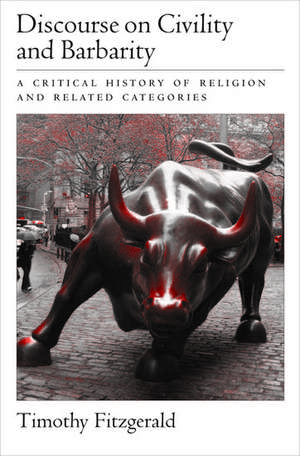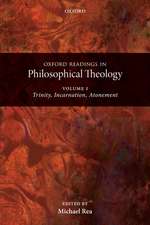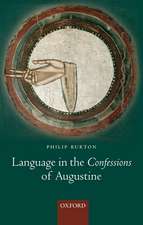Discourse on Civility and Barbarity
Autor Timothy Fitzgeralden Limba Engleză Hardback – 6 dec 2007
| Toate formatele și edițiile | Preț | Express |
|---|---|---|
| Paperback (1) | 258.75 lei 31-37 zile | |
| Oxford University Press – mar 2012 | 258.75 lei 31-37 zile | |
| Hardback (1) | 204.55 lei 31-37 zile | |
| Oxford University Press – 6 dec 2007 | 204.55 lei 31-37 zile |
Preț: 204.55 lei
Preț vechi: 248.76 lei
-18% Nou
Puncte Express: 307
Preț estimativ în valută:
39.18€ • 40.36$ • 32.82£
39.18€ • 40.36$ • 32.82£
Carte tipărită la comandă
Livrare economică 12-18 februarie
Preluare comenzi: 021 569.72.76
Specificații
ISBN-13: 9780195300093
ISBN-10: 0195300092
Pagini: 368
Dimensiuni: 236 x 163 x 36 mm
Greutate: 0.69 kg
Ediția:1
Editura: Oxford University Press
Colecția OUP USA
Locul publicării:New York, United States
ISBN-10: 0195300092
Pagini: 368
Dimensiuni: 236 x 163 x 36 mm
Greutate: 0.69 kg
Ediția:1
Editura: Oxford University Press
Colecția OUP USA
Locul publicării:New York, United States
Recenzii
Timothy Fitzgerald is one of the most important scholars raising questions about the category of religion today, and in this essay he makes significant new contributions. He broadens the range of the discussion to include important but neglected categories that arose along with the category of religion, most notably the secular and the political, and he traces the emergence of this discourse in English-language texts dealing with travel and governance, showing that they emerge much later than is widely assumed. Anyone seriously interested in religion simply must take seriously Fitzgerald's central claim: it is wrong to think of religion as something that exists in and of itself, as an observable, objective domain essentially distinct from other domains such as politics and economics.
This important book continues Fitzgerald's investigations into the rhetorical uses and abuses of religion" and related terms. Here Fitzgerald leads us into close readings of primary texts from the early modern era, and shows that "religion" and "politics" and "economics" are not value-neutral descriptive categories, but modern inventions that serve the interests of a new kind of state and a new kind of market. With relentless logic, Fitzgerald cuts through the confusions, anachronisms, and nonsense that surround the modern use of these terms. In so doing, he helps us see that the way that Western social sciences have constructed the world is not inevitable, and that we need not see non-Western others through only one lens. This book will be of tremendous benefit not only to those in religious studies, but to political scientists, sociologists, and historians as well.
In this perceptive study, Fitzgerald shows us just how the assumption that religion is essentially about personal belief becomes a crucial step in the construction of 'religion' as the name of a universal human experience. His emphasis is on changing configurations rather than binaries, which leads him to argue that in taking 'the religious' as the binary opposite of 'the secular' one is subscribing to an ideological enterprise. Discourse on Civility and Barbarity is an important contribution to the growing critical literature on the idea of Religion as an essentialized category.
John M. Giggie's After Redemption analyzes African American political, religious, and cultural life in the Mississippi and Arkansas Delta from the 1870s through the 1910s...Does a meticulous job of excavating the worldview of its black Southern subjects.
This important book continues Fitzgerald's investigations into the rhetorical uses and abuses of religion" and related terms. Here Fitzgerald leads us into close readings of primary texts from the early modern era, and shows that "religion" and "politics" and "economics" are not value-neutral descriptive categories, but modern inventions that serve the interests of a new kind of state and a new kind of market. With relentless logic, Fitzgerald cuts through the confusions, anachronisms, and nonsense that surround the modern use of these terms. In so doing, he helps us see that the way that Western social sciences have constructed the world is not inevitable, and that we need not see non-Western others through only one lens. This book will be of tremendous benefit not only to those in religious studies, but to political scientists, sociologists, and historians as well.
In this perceptive study, Fitzgerald shows us just how the assumption that religion is essentially about personal belief becomes a crucial step in the construction of 'religion' as the name of a universal human experience. His emphasis is on changing configurations rather than binaries, which leads him to argue that in taking 'the religious' as the binary opposite of 'the secular' one is subscribing to an ideological enterprise. Discourse on Civility and Barbarity is an important contribution to the growing critical literature on the idea of Religion as an essentialized category.
John M. Giggie's After Redemption analyzes African American political, religious, and cultural life in the Mississippi and Arkansas Delta from the 1870s through the 1910s...Does a meticulous job of excavating the worldview of its black Southern subjects.
Notă biografică
Reader in Religion, University of Stirling, Scotland.











